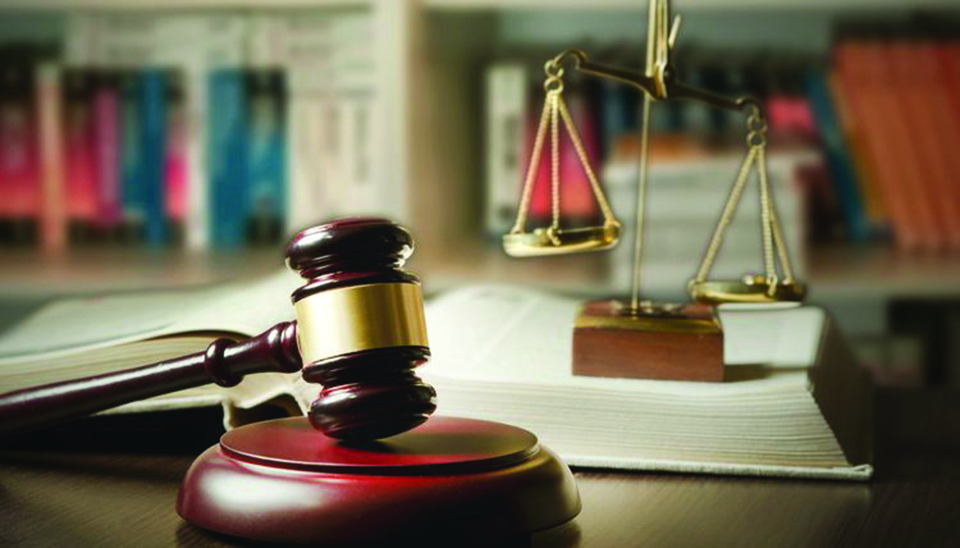
OR

More from Author
The parliamentary hearing committee is preparing to conduct hearing on chief justice, CIAA chief and ambassadors. Will it be able to break the past trend?
Though we have had the practice of parliamentary hearing for appointments in top positions of various constitutional bodies for over a decade now, the performance and reliability of Parliamentary Hearing Special Committee, the parliamentary body that conducts such hearings, has always remained a suspect. This is because in the last one decade either parliamentary hearing has been too ineffective or recommendations of the hearing committee have been rarely followed or hearing itself has merely become a ritual exercise.
In the last one decade, a number of chief justices, heads and members of constitutional bodies and ambassadors faced hearings, but hardly any members, even those with questionable credentials, were held back by the committee. The parliamentary hearing special committee is preparing to conduct hearing for Chief Justice Deepak Raj Joshee. Very soon, it will have to do the same for CIAA chief, ambassadors and other top officials. Will it be any different with two thirds majority government in power?
Many unpopular and corrupt officials were endorsed by hearing committee in the past and as a result they were found engaged in making money with undue means. It is the time to ensure that this does not happen now. The members of hearing committee are found to have done two things so far: Conducting hearing for the sake of formality or indulging in character assassination of prospective officials by filing complaints or cases against them. Despite huge criticism, the hearing committee has not been able to change its working style.
It is not easy to bring reforms in the already spoiled institutions overnight. This is why we need capable and qualified persons in such institutions. Unless the hearing committee concentrates on vetting the aspirants on this basis, there will be no change in the system. Ultimately the relevance of parliamentary hearing system will be questioned.
Vital constitutional bodies like Commission for Investigation of Authority (CIAA), Election Commission and Public Service Commission among others need momentous changes. Our public institutions have failed to deliver services as per the need of the people. Despite constitutional guarantee people are deprived of good governance and rule of law. Only when we appoint clean, honest and competent persons in public offices, we can expect good governance and rule of law.
Test case of judiciary
Let me take the example of appointments in judiciary to illustrate my point. The subject of debate at the moment is whether judges need to make public their property details at a time when all public office holders including Prime Minister, minister and other government staffs have to declare details of assets. According to Section 29 of Judicial Council Act (2015), every judge should submit their renewed property details to Judicial Council, but the act is silent about whether or not such details need to be made public.
Law Minister Sher Bahadur Tamang (who resigned on Tuesday) had stood in favor of making public assets of judges. He argued that the people have the right know the property details of justice providers. A wise decision in this regard could go a long way in initiating vital reforms in judiciary.
Fighting against corruption, delayed justice and proper mobilization of legal aid, reform in allotment of cases to the judges, appointment and performance evaluation of judges are the main issues with our judiciary. Unless oversight agencies work on these agendas properly, judicial reform won’t be possible.
Few months back Tamang had accused judges of being involved in corruption amounting to annual budget. His accusation speaks of public perception of judiciary which does not help uphold the sanctity and fairness of judiciary. Thus oversight agencies need to inspire CJ for bringing reforms in the judiciary. Truth of the matter is that you cannot move a single file from one table to another without paying kickbacks to court staffs. Drastic reform is needed in the judiciary precisely for this reason.
We have heard about corruption in public offices like Land Revenue Office, Land Reform Office, District Administration Office and other public contract offices, but corruption in courts is much more serious because court staffs are beyond jurisdiction of CIAA, one reason why controlling corruption in judiciary has become a tough job.
Various former chief justices have admitted irregularities and delay in court cases. Various reports have attested this fact. Lengthy justice delivery process, court staffers and lawyers extending hearing citing one or other reasons are the burning issues in our judiciary. This must be acknowledged by oversight agencies and they should work accordingly.
Haphazard appointment of judges is another problem. Selection of judges has become a matter of privilege for those close to power centers, while many others with good qualifications, capacity and honesty and who have contributed for legal sector for a long time do not get any opportunity. The process of appointment of judges has not been any different from the days of Rana regime or monarchy.
Those close to power centers and their near and dear ones have been reaping benefits from appointment system. Those who want to change this system have not been able to raise their voice strongly. Even after all this, no attempts have been made for reforms in judiciary.
Appointment criteria were set time and again but those standards were either unfairly made or meant to appoint or make it easier to appoint the near and dear ones. This is why parliamentary hearing committee must work to make Judicial Council more accountable in order to ensure merits-based appointments.
Misuse of legal aid meant for the poor and the needy is another vexing problem. There is no transparency and proper auditing of funds amounting to millions of rupees to be provided to such people—both through state treasury or foreign aids. There is no proper monitoring on where the legal aid is spent and what this could achieve. Very few people have access to justice. The rest evade visiting courts. Altogether 15 percent of total population has access to justice so far.
Allotment of cases to justices by the chief justice is another issue. Most chief justices have faced criticism regarding this. We need to find an alternative to this system. Collegium of Supreme Court of India has recently pronounced that this power cannot be replaced with any other alternative because chief justice is a first justice of the roster of justices of Supreme Court and therefore s/he should take the responsibility of allotting cases to other justices.
Beyond judiciary
Judiciary is only one example. Other institutions like CIAA, Election Commission and Public Service Commission need visible reform. If the two thirds majority government fails on this, reforms will be next to impossible.
The parliamentary hearing special committee should evaluate the contenders of constitutional posts based on their qualifications, honesty, merits and reform plans for the sector for which they want to work. The hearing committee should inspire such people. Otherwise, people will soon lose trust with parliamentary hearing committee and thereby the government.
Twitter: @anantarajrajlui
You May Like This

Parliamentary hearing of CJ to conclude on Monday
KATHMANDU, July 29: The Parliamentary Hearing Special Committee will meet on Monday to decide whether to endorse the recommendation made... Read More...

Silwal case hearing postponed to June 29
KATHMANDU, June 15: The Supreme Court (SC) has deferred the date of hearing for the case of the Inspector General... Read More...

PHSC hearing process postponed unless next notice
KATHMANDU, July 16: The scheduled hearing for the recommended justices to the Supreme Court said to begin from Sunday has... Read More...




Just In
- Kushal Dixit selected for London Marathon
- Nepal faces Hong Kong today for ACC Emerging Teams Asia Cup
- 286 new industries registered in Nepal in first nine months of current FY, attracting Rs 165 billion investment
- UML's National Convention Representatives Council meeting today
- Gandaki Province CM assigns ministerial portfolios to Hari Bahadur Chuman and Deepak Manange
- 352 climbers obtain permits to ascend Mount Everest this season
- 16 candidates shortlisted for CEO position at Nepal Tourism Board
- WB to take financial management lead for proposed Upper Arun Project







_20220508065243.jpg)








Leave A Comment